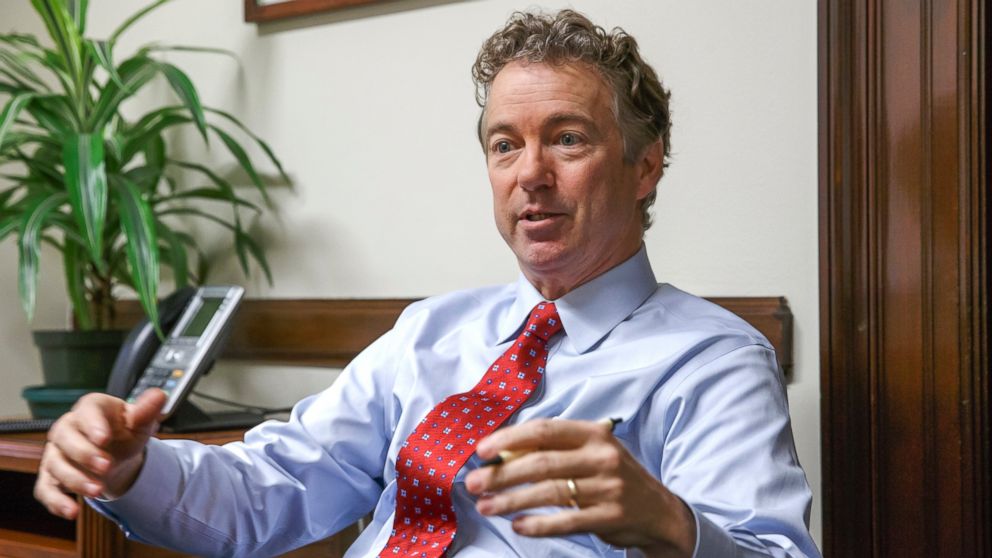Rand Paul Reverses Stance on Defense Spending by Trying to Increase It
GOP senator tried to increase military spending by $190 billion over two years.

— -- Kentucky Sen. Rand Paul revealed a new stance on defense spending when he introduced an amendment to the budget that would increase defense spending by $190 billion over the next two years.
This increase in defense spending runs counter to the budget the Republican introduced in 2011, just months after joining the Senate. That plan, which failed in the Senate, would have slashed defense spending from $553 billion in 2011 to $542 billion in 2016.
Paul’s new amendment failed in the Senate today with only four senators supporting the measure.
Since his flirtation with a presidential bid first began, Paul has walked a tricky line on military spending and, in recent months, the Kentucky Republican has adopted a more hawkish position. In late 2014, Paul began to say he’d be open to increasing defense spending, but only if there are cuts to other parts of government.
Paul’s amendment to increase defense spending would have been offset by reductions to other areas, including foreign assistance, the Department of Education and the Department of Housing and Urban Development.
“National defense is the number one priority of the federal government. My amendment increases defense spending but pays for it with spending cuts. It is irresponsible and dangerous to continue to put America further into debt,” Paul said on the Senate floor. “We need a strong national defense but we should be honest with the Americana people and pay for it.”
Paul’s proposed cuts to foreign assistance infuriated potential presidential contender Sen. Lindsey Graham, R-S.C., who held a hearing on the topic just hours before the vote on Paul’s amendment.
“There will be a vote on the floor of the United States Senate where a member of the Senate has chosen to reduce this account by 50% and give that money to the military,” Graham said. “Here's what I would say on behalf of the military: they don't want this money. They want this account to survive and thrive.
“To those who constantly demagogue foreign aid as being the root of our financial problems -- Please stop because you don't know what the hell you're talking about,” Graham said.
Paul wasn't the only potential 2016 contender trying to increase defense spending. Sen. Marco Rubio, R-Fla., along with Sen. Tom Cotton, R-Ark., introduced an amendment to increase defense spending to $697 billion next year, a $78 billion increase. But the Rubio-Cotton amendment does not provide for a way to pay for the increase. The Rubio-Cotton amendment failed in the Senate with a vote of 32 to 68.
Without mentioning Rubio by name, an adviser to Paul said the Kentucky senator's amendment came as a response to other plans that increased funding without including cuts in other departments.
"This amendment is in response to others in both chambers who are attempting to add to defense spending - some way more than Senator Paul's amendment - without paying for it," Doug Stafford, a senior adviser to Paul, said. "Senator Paul believes national defense should be our priority. He also believes our debt is out of control. This amendment is to make sure people understand that if you believe we need more funding for national defense, you should show how you would pay for it. No one should be seeking increased funding for anything by increasing our debt.”




